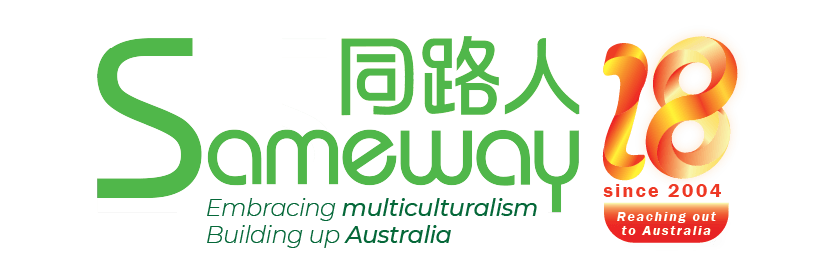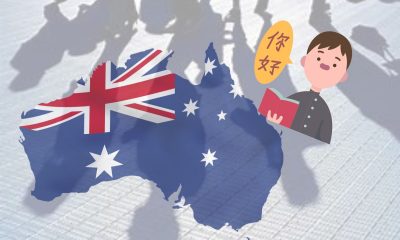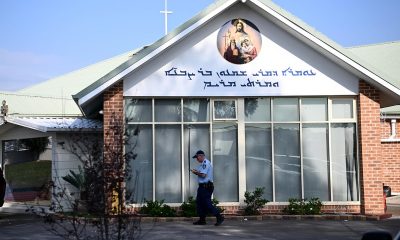同路人語
695 澳洲社會凝聚力研究
Social Cohesion Research in Australia
移民到澳洲的朋友, 常常會問自己, 澳洲到底是一個怎樣的國家? 在俄烏戰爭差不多兩年, 又加上最近中東以哈戰爭平民死傷無數, 及後新冠時代經濟發展不前的大氣候下, 我們也會問對將來能否仍有盼望?
周三發表的2023年度Scanlon 社會凝聚力研究, 訪問了7500人, 長期探討澳洲社會凝聚力的變化, 同時亦研究澳洲人怎樣看自己及世界, 給了我們一些亮光和盼望。Scanlon凝聚力研究自2007年開始, 每年通過問卷及訪問, 為澳洲國民對國家的關係及其他人的接納, 作出報告及探討。
今年的報告確認澳洲社會凝聚力回到新冠大流行前的水平, 國民對國家榮譽感及歸屬感下降, 增加經濟壓力及對社會包容與公義感到弱化, 是社會結構的警號。除了有62%的人認為經濟及樓價無法負擔是最大問題外, 亦有40%的人極度關注氣候變化。不過79%的澳洲人仍感到快樂, 但生活貧困, 亦是最多人感到不開心的原因。 其中單親家庭及獨居者, 特別感到經濟困難, 而年青人(18-44歲)只有48%覺得自己生活還可以, 及18-24歲群組, 30% 感到孤立及不快樂。 這是令人憂慮的。
不過澳洲人認同澳洲是福地的, 從2007年研究開始, 有超過80%, 明顯地下降到現時只有63%, 而相信澳洲是公平的社會的人數比例, 亦在下降。澳洲人信任政府會做正確的決定, 下降到只有36%, 而不少人認為澳洲社會不再是公平, 亦因此而降低對澳洲的榮譽感及歸屬感。
可喜的是澳洲人仍普遍支持多元文化社會, 相信多元文化對社會是正面。但偏見及歧視情況, 仍然存在。其中, 對埃塞俄比亞、黎巴嫩、中國、伊拉克及蘇丹來的移民, 支持度都低於60%。對穆斯林感到負面的有27%。而有六分之一的澳洲人, 在過去一年都曾經歷過被歧視。令人稍為安慰的, 是社區中對不同文化居民的接納維持高水平, 表示澳洲人仍然對其他人友善及關懷。
在面對世界動盪及經濟困難的情境下, 調查指出澳洲人仍維持對別人的關愛及包容, 相信澳洲社會仍有盼望, 明天會更好。
周偉文
Social Cohesion Research in Australia
Immigrants in Australia often ask what this nation is about? Do we have any hope with a prolonged war of Russia/Ukraine and massive causalities in the Israel/Hamas conflict, amid a post-Covid economic downturn.
The 2023 Scanlon Mapping Social Cohesion Research outcome announced on Wednesday after interviewing 7500 participants sheds some light on how Australians see themselves in this country. Since 2007 this annual questionnaire project studies and reports on Australians’ self-assessment of their social state.
This year’s report confirms our social cohesion has returned to the pre-Covid level, people’s feeling of honour and belonging to the nation has declined, financial stress has risen while social accommodation and righteous have dropped.. all being warning signs in our social structure. 62% of people citing financial and housing burdens as most worrying, and 40% concerning about climate change. But still 79% of Australians are feeling happy, despite a lowering living standard makes them feel unhappy. The single parents and people living on their own are the most hard-hit on this, only 48% of the young generation (aged 18-44) feel they are still fine, and 30% of the 18-24 age group feel loony and unhappy. This is worrying.
The proportion of participants regarding Australia as a lucky country has dropped from 80% at the start of the annual study to 63% in this year’s, so are the people considering Australia is a fair society. People trusting the government would act responsibly has come down to 36%. People are losing their sense of honour and belonging in this nation because they cannot see a fair society.
Pleased to see most Australians are in support of multiculturalism, this is a positive sign in our society; although prejudice and discrimination still exist. Less than 60% of people are in favour of immigrants from Ethiopia, Lebanon, China, Iraq and Suden, with 27% feeling negative about Muslims. One out of six Australians has encountered discrimination over the past year. Fortunately people in the community still have high acceptance of others, showing their kindness and caring.
At a time of world turmoil and financial doldrum, the study still finds us caring and accepting. Hence we as Australians should have hope and know we will have a better tomorrow.
Mr. Raymond Chow, Publisher













